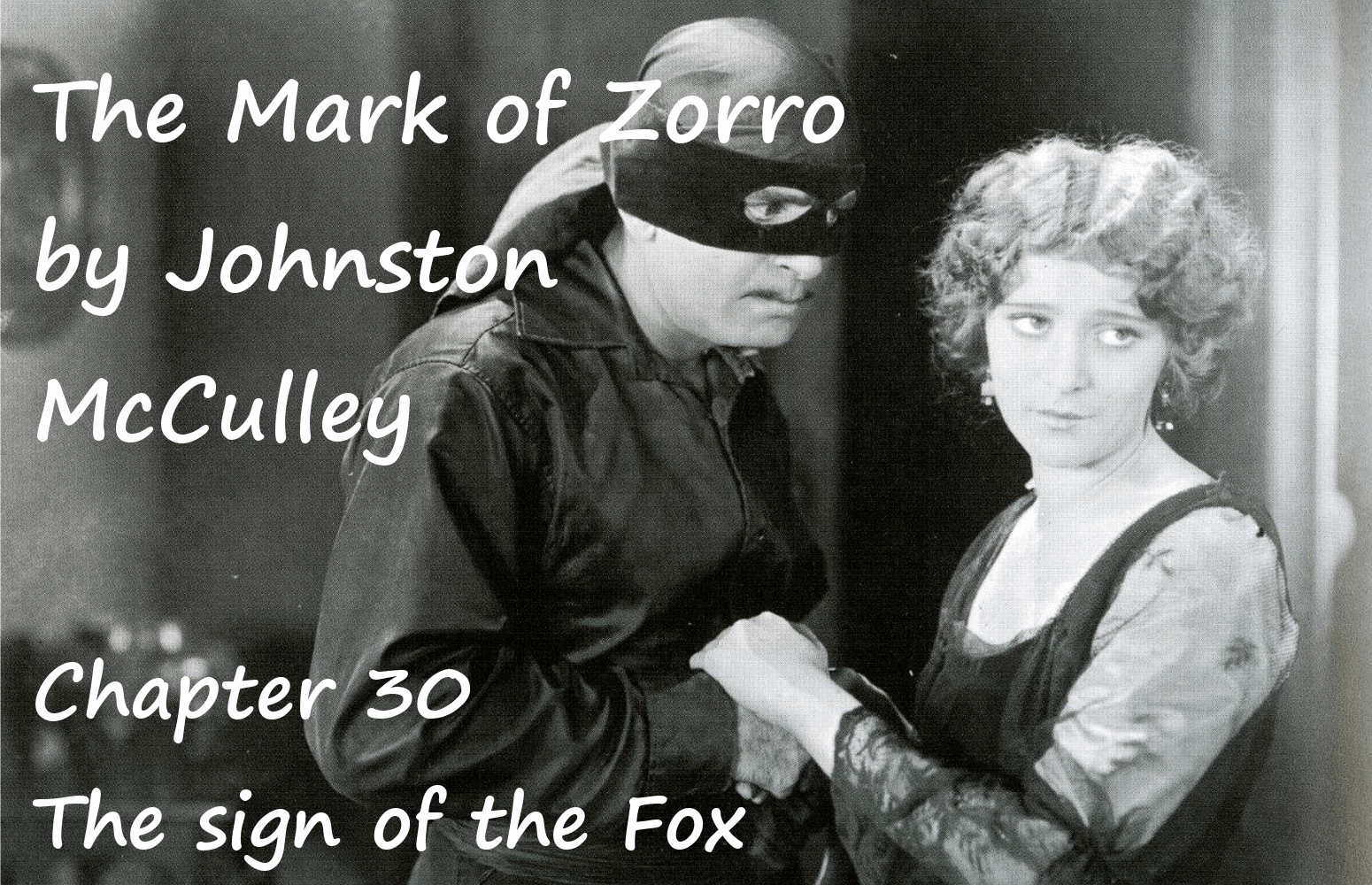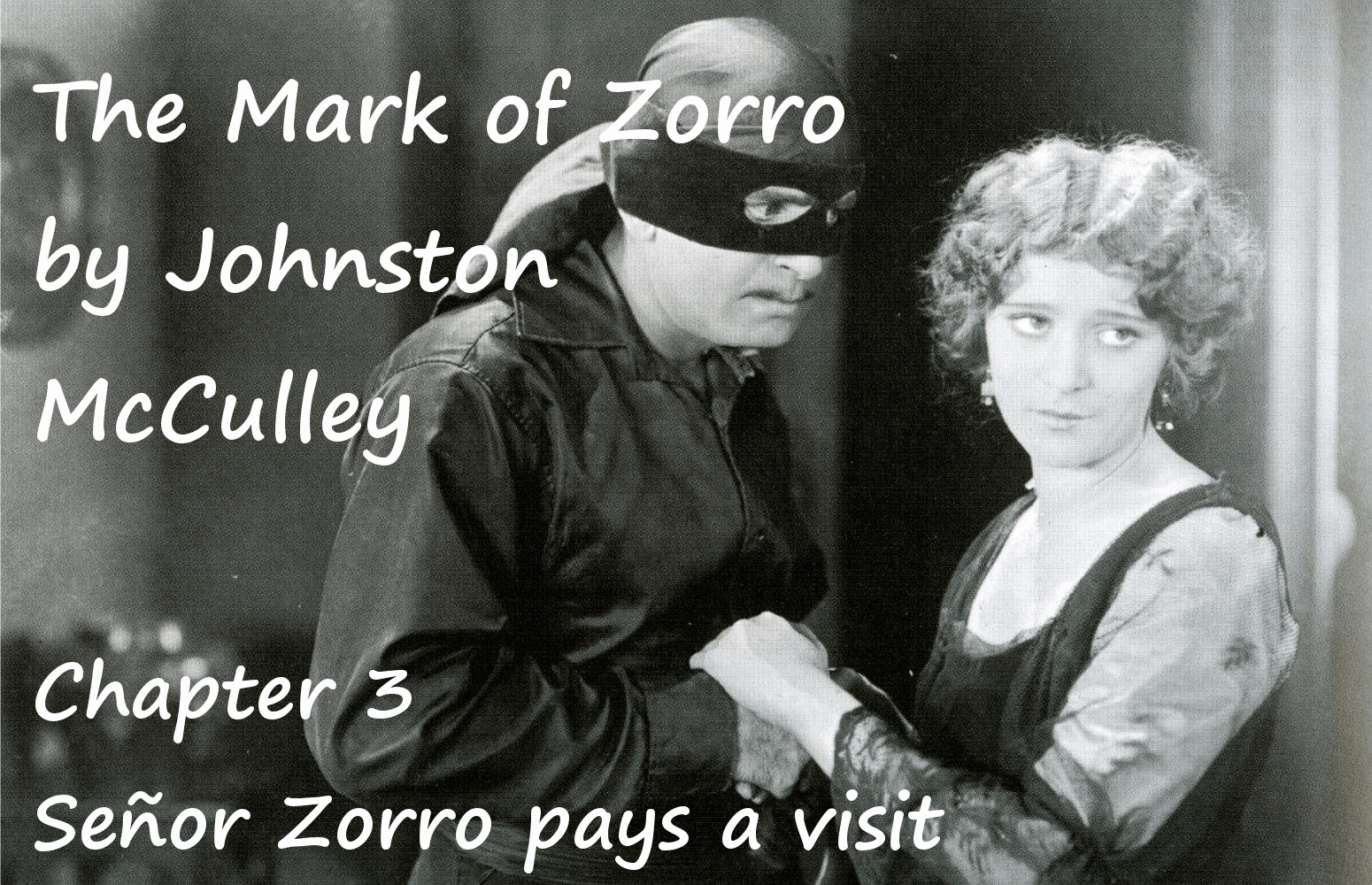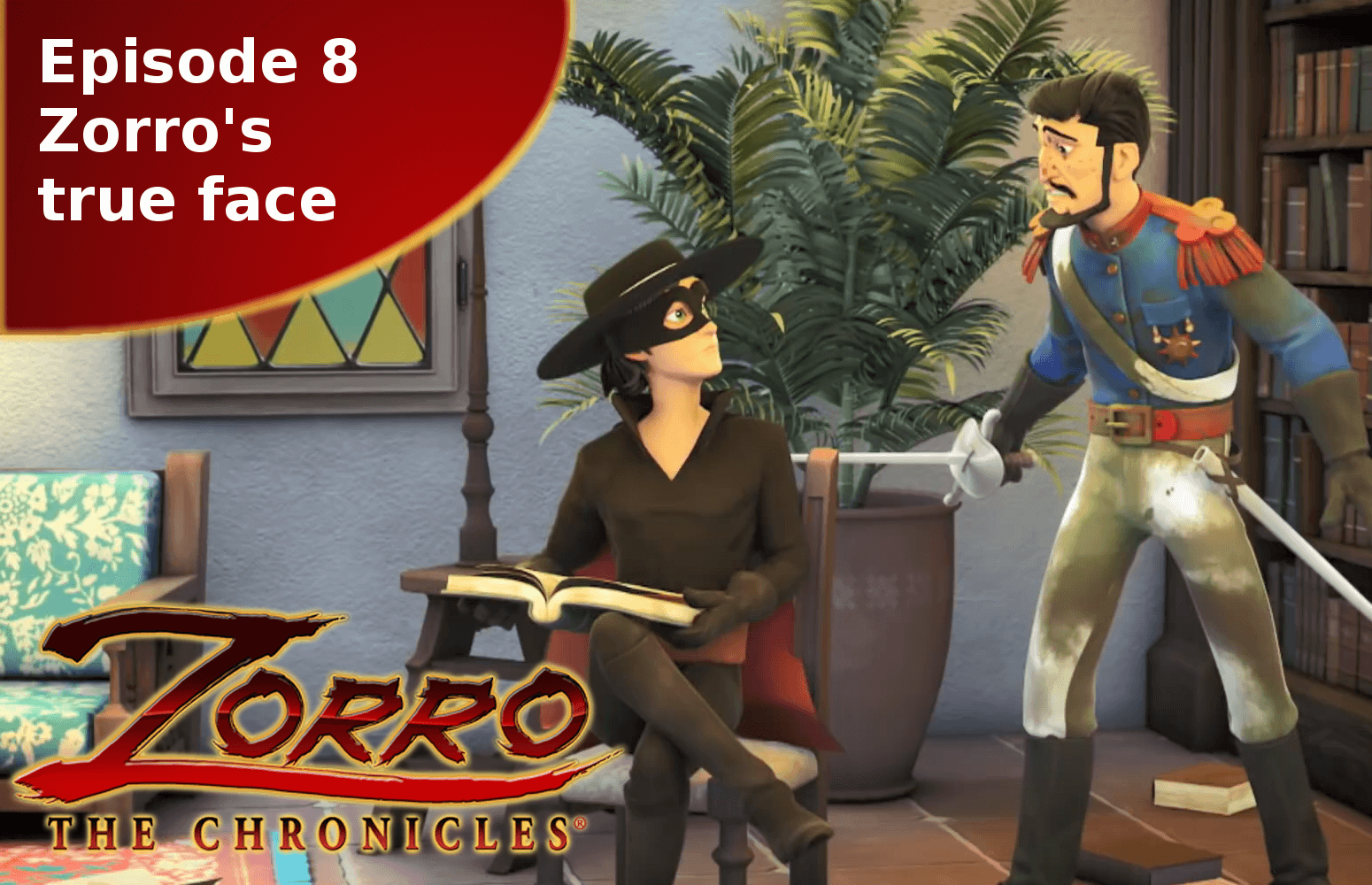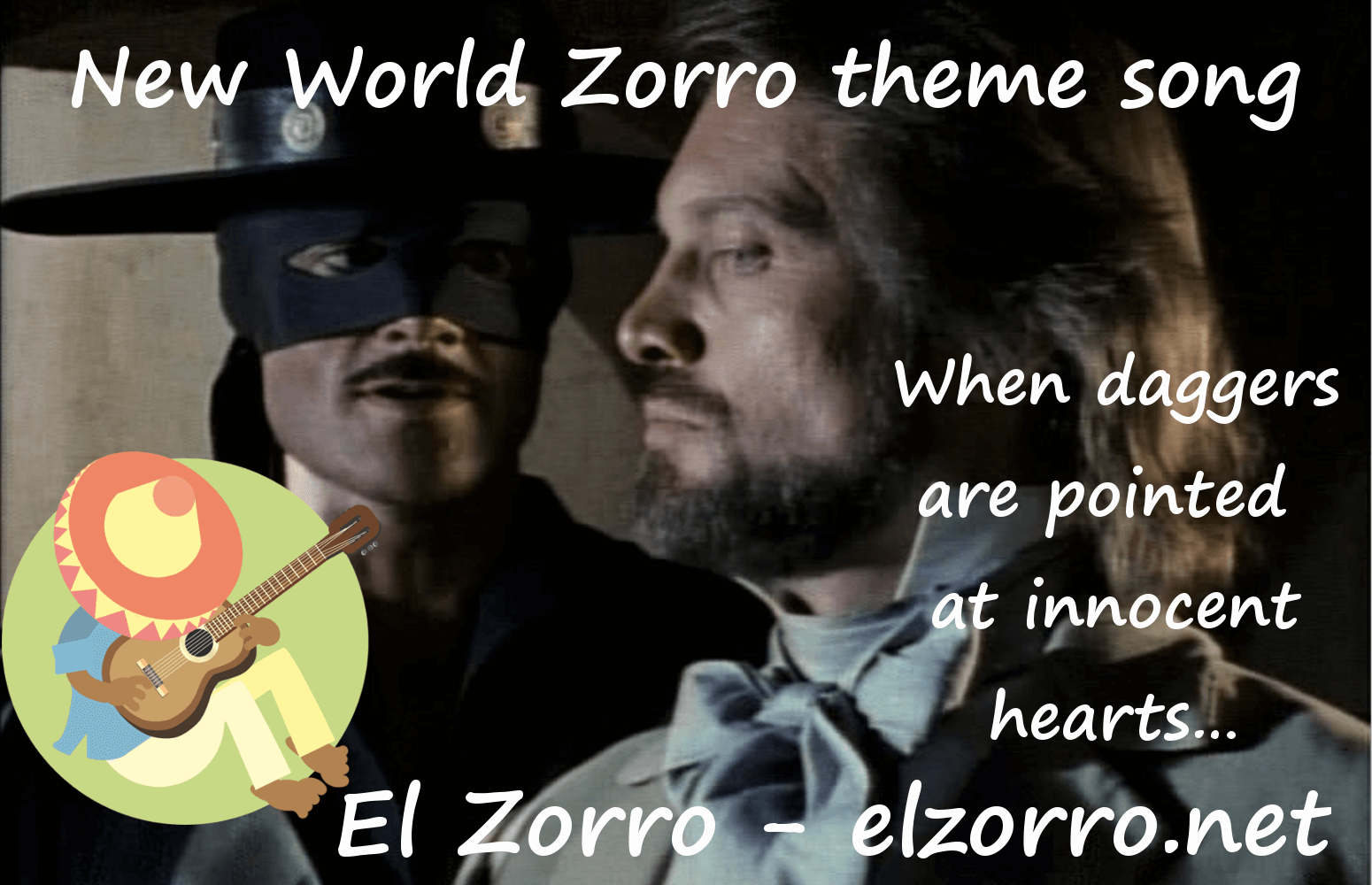The Mark of Zorro chapter 30 The sign of the Fox
The Mark of Zorro chapter 30 The sign of the Fox
Author McCulley, Johnston, 1883-1958
Title The Mark of Zorro
Note Published serially under the title: The curse of Capistrano.
Language English
Copyright Status Public domain in the USA.
An hour after dusk that night a native sought out one of the caballeros with the intelligence that a gentleman wished to speak to him immediately, and that this gentleman was evidently wealthy since he had given the native a coin for carrying the message, when he might just as well have given nothing more than a cuff alongside the head; also that the mysterious gentleman would be waiting along the path that ran toward the San Gabriel trail, and to be sure that the caballero would come he had bade the native say that there was a fox in the neighborhood.
“A fox! Zorro—fox!” the caballero thought, and then he ruined the native forever by giving him another coin.
He went to the rendezvous immediately, and there he found Señor Zorro sitting his big horse, his face masked, the cloak wrapped around his body.
“You will pass the word, caballero,” Señor Zorro said. “I would have all men who are loyal and wish to do so, meet at midnight in the little valley beyond the hill. You know the place? Si? I shall be waiting.”
Then Señor Zorro wheeled his horse and dashed away in the darkness, and the caballero went back to the pueblo and passed the word to those men he knew could be depended upon, and urged upon them that they pass it to others of the league. One went to Don Diego’s house, but was told by the despensero that Don Diego had complained of a fever and had retired to his chamber, and had left word that he would flay alive any servant who dared enter the room unless he called.
Near the hour of midnight the caballeros began slipping from the pueblo one at a time, each upon the back of his best horse, and each armed with sword and pistol. Each man had a mask that could be put over his features instantly, for that had been decided upon at Don Alejandro’s hacienda, among other things.
The pueblo was in darkness, save that there were lights in the tavern, where some of his excellency’s escort made merry with the local troopers. For Sergeant Pedro Gonzales had returned with his men just before nightfall, glad to be back from a fruitless chase, and hoping that the next scent would be warmer.
Those in the tavern had gone down the hill from the presidio, some leaving their horses there without saddles or bridles on, and they had no thought of an encounter with Señor Zorro this night. The fat landlord was kept busy, for the soldiers from the north had coins in their purses and were willing to spend them. Sergeant Gonzales, holding the attention of the company as usual, was detailing at length what he would do to this Señor Zorro if the saints were kind enough to let them meet and grant him his blade in his hand.
There were lights in the big lounging-room of the presidio, too, for few of the soldiers had retired. And there were lights in the house where his excellency was a guest, but the remainder of the pueblo was in darkness, and the people slept.
In the carcel there was no light at all except one candle burning in the office, where a sleepy man was on guard. The jailer was in his bed. Prisoners moaned on the hard benches in the prison-room. Don Carlos Pulido stood before a window, looking up at the stars; and his wife and daughter huddled on a bench beside him, unable to sleep in such surroundings.
The caballeros found Señor Zorro waiting for them as he had said he would be, but he remained aloof, speaking scarcely a word, until all were present.
“Are all here?” he asked then.
“All except Don Diego Vega,” one replied. “He is ill with a fever, señor.”
And all the caballeros chuckled, for they had an idea the fever was caused by cowardice.
“I take it that you know something of what is in my mind,” Señor Zorro said. “We know what has happened to Don Carlos Pulido and the ladies of his family. We know they are innocent of any treason; and were they not, they should not have been taken to carcel and incarcerated with common felons and drunkards.
“Think of those gentle ladies in such surroundings! Think of it—because Don Carlos has the ill will of the governor! It is the sense of the league that something be done in this matter? If it is not, then will I do something by myself!”
“Rescue them!” a caballero said; and the others growled their approval. Here was a chance for risk and adventure and an opportunity to do a good deed.
“We must enter the pueblo quietly,” Señor Zorro said. “There is no moon, and we will not be observed if we use caution. We shall approach the carcel from the south. Each man will have his task to do.
“Some will surround the building to give notice if any approach it. Others must be ready to beat off the soldiers, if they respond to an alarm. Others will effect an entrance to the carcel with me, and rescue the prisoners.”
“It is an excellent plan,” one said.
“That is but a small part of it. Don Carlos is a proud man, and if given time for reflection may refuse to be rescued. We cannot allow that. Certain ones will seize him and take him from the place. Others will attend to the Doña Catalina. I will undertake to care for the señorita. Now—we have them free! And then what?”
He heard murmurs, but no distinct reply, and so he continued to outline the plan.
“All will ride to the highway just below this place,” he said. “At that point we shall scatter. Those who have the Doña Catalina in charge will hasten with her to the hacienda of Don Alejandro Vega, where she can be hidden if necessary, and where the governor’s soldiers will hesitate before entering and seizing her.
“Those who have Don Carlos in charge will take the road to Pala, and at a certain point some ten miles from this pueblo they will be met by two natives of understanding, who will give the sign of the fox. The natives will take Don Carlos in charge and care for him.
“When these things are done, each caballero will ride to his home quietly and alone, telling what story pleases him, and using great caution. I shall have conducted the señorita to a safe place by that time. She shall be given into the keeping of old Fray Felipe, a man we can trust, and he will hide her if he must. Then we will watch to see what the governor does.”
“What can he do?” a caballero asked. “Have them searched for, of course.”
“We must await developments,” Señor Zorro said. “Are all now ready?”
They assured him that they were, and so he named the men for each task, and then they left the little valley and rode slowly and cautiously around the little town, and approached it from the south.
They heard the soldiers shouting and singing in the tavern, saw the lights in the presidio, and crept toward the carcel quietly, riding two by two.
In a short time it had been surrounded by quiet, determined men; and then Señor Zorro and four others dismounted and went to the door of the building.



